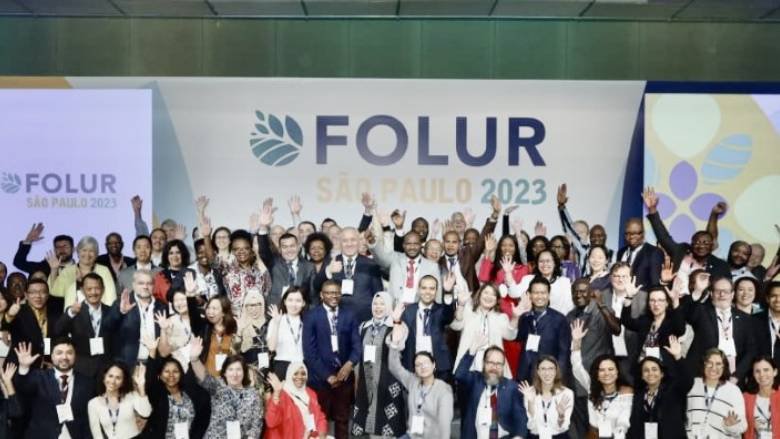Like other agricultural initiatives led by the World Bank, the Food Systems, Land Use and Restoration program (FOLUR) is a powerful game-changer in the global arena, sparking transformative government policies and private sector practices to support environmental restoration.
The FOLUR effort is urgent as supply chain vulnerabilities to risks provoked by international conflict and the vagaries of weather patterns worsened by climate change on agriculture grow in tandem with spiraling demand for food under pressure of population growth and changing dietary preferences. The program was designed to play a significant role in containing environmental damage caused by agriculture-driven deforestation and biodiversity loss, which have also exacerbated the climate crisis.
At the recent FOLUR annual meeting co-hosted in São Paulo by the Brazilian government a main subject of discussion was how best to accelerate fruitful knowledge exchange to build bridges between countries, deploy tools and establish frameworks to improve the flow of agricultural and environmental expertise.
The FOLUR program re-envisions agriculture as a sustainable venture by building integrated landscape farming systems and efficient commodity value chains to reduce the environmental impact of cocoa, coffee, livestock, maize, palm oil, rice, soy and wheat in 27 countries.
A $345 million initiative funded by the Global Environment Facility (GEF) – the multilateral organization supporting environmental improvements in countries throughout the Global South – ultimately FOLUR is tasked with transforming the global food system.
“The eight commodities covered by FOLUR are very responsible for the deforestation that has happened in the past,” said Chris Brett, lead agribusiness specialist at the World Bank, who jointly leads FOLUR with Timothy Brown, senior natural resource management specialist at the World Bank.
“What we’re trying to do in the future is to reduce the environmental impact of these commodities on the climate crisis and on biodiversity loss and even use them to drive reforestation.”
More than a hundred delegates were in São Paulo, at the first annual meeting since the program launched in 2021, representing the FOLUR country projects, the private sector, GEF and the five FOLUR partner organizations – including the Food and Agriculture Organization of the United Nations, the Food and Land Use Coalition, the Global Landscapes Forum, the Good Growth Partnership and the International Finance Corporation.

